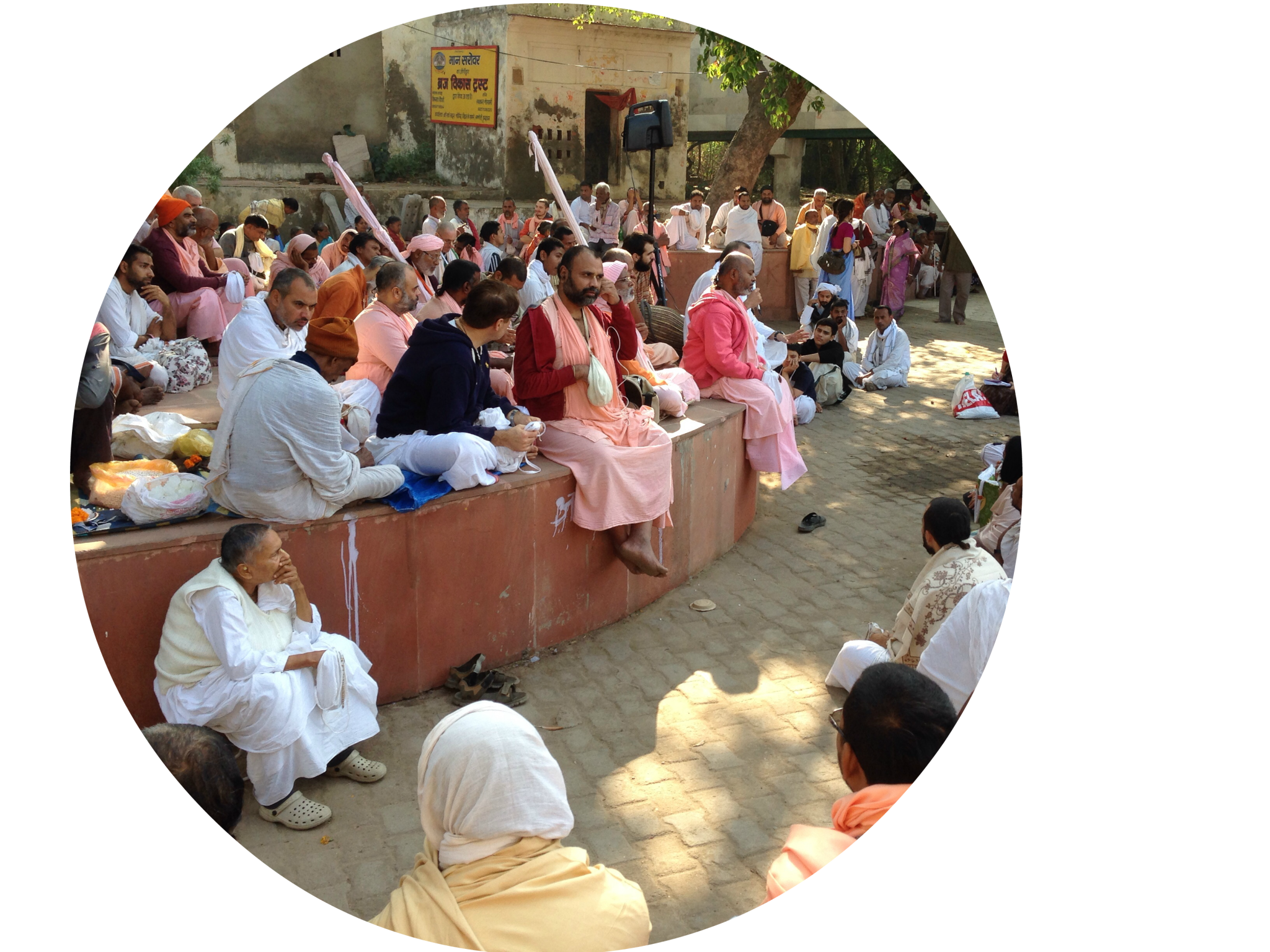
Kārttika-vrata is also called dāmodara-vrata. The month of Kārttika is also known by the name ūrjā. The word ūrjā literally means power, strength, energy or vigour. Śrīmatī Rādhikā is the energy of Lord Kṛṣṇa and therefore ūrjā refers to Her. To worship Śrī Rādhā-Dāmodara by observing the limbs of bhakti in a regulated manner in this month of Kārttika is called ūrjādara, or in other words, giving respect (ādara) to Ūrjā (Śrīmatī Rādhikā). Ūrjā is also called śakti. The goddess who presides over this month is known as Ūrjeśvarī. Ūrjeśvarī is another name of Śrīmatī Rādhikā.
In the Padma Purāṇa it is said (cited in Bhakti-rasāmṛta-sindhu (1.2.221)):
yathā dāmodaro
bhaktavatsalo vidito janaiḥ
tasyāyaṁ tādṛśo māsaḥ
svalpam apy upakārakaḥ
As the Supreme Lord Śrī Dāmodara is famous in this world for being very affectionate to His devotees (bhakta-vatsala), this month of Dāmodara, which is dear to Him, considers even very little spiritual practice to be very great and bestows tremendous results.
In his commentary to this verse Śrīla Jīva Gosvāmī has given a nice analogy. When a magnanimous person takes compassion upon one who has a heavy debt, he considers a small payment to be substantial and thus liberates the debtor from his liability. Similarly the month of Dāmodara considers a very small practice of bhajana performed with a respectful attitude to be very great and bestows the invaluable wealth of bhakti towards Bhagavān Śrī Dāmodara.
To observe vows related to bhakti for the pleasure of the Lord in the month of Kārttika is called niyama-sevā. The unique glory of observing niyama-sevā in the month of Kārttika in Vraja-maṇḍala has been described in Bhakti-rasāmṛta-sindhu(1.2.222–3), quoting from the Padma Purāṇa:
bhuktiṁ muktiṁ harir dadyāt
arcito ’nyatra sevinām
bhaktis tu na dadāty eva
yato vaśyakarī hareḥ
sā tv añjasā harer bhaktir
labhyate kārttike naraiḥ
mathurāyāṁ sakṛd api
śrī-dāmodara-sevanāt
To persons who perform sādhana in places outside of Vraja-maṇḍala and without strong attachment to Kṛṣṇa, Bhagavān certainly awards bhukti and mukti but He does not award bhakti, for by bhakti the Lord becomes bound to His devotee. But if a person who is otherwise devoid of sādhana worships Śrī Dāmodara even once in Vrajamaṇḍala in the month of Kārttika, he very easily obtains the most rare hari-bhakti.
Śrī Bhakti-rasāmṛta-sindhu-bindu, 2nd Edition (Śrīla Viśvanātha Cakravartī Ṭhākura)
Translation and commentary by Śrīla Bhaktivedānta Nārāyaṇa Mahārāja








